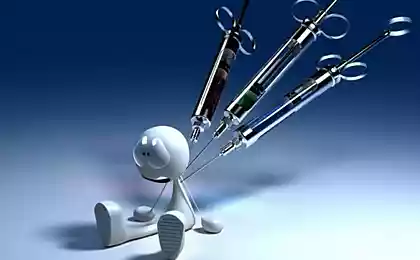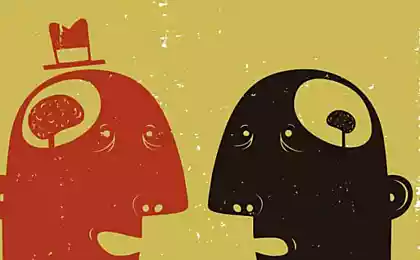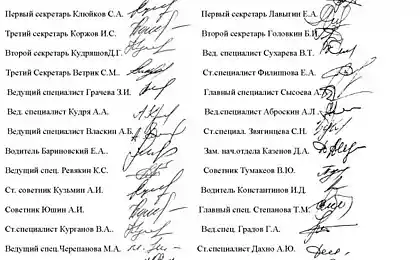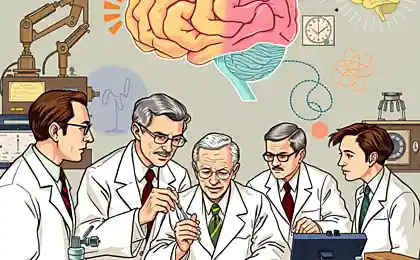604
5 of questionable studies in recent years, from which science finally renounced
When you are on specialized sites across articles about the amazing breakthroughs in the field of science, we should not rejoice too soon. It's not even the fact that journalists can exaggerate, and that between the opening and the introduction of often takes several years. But many studies ultimately refuse to. Worse, most of the failures associated even with errors, from which, as we know, no one is safe, and with a deliberate hoaxes and fraud. We offer you a selection of these studies was identified in the last few years.
1. Ying Mun Heng - genius, says Professor Mun
Korean scientist Ying Heng-moon raised the concept of peer review to the next level by considering their own own work under various aliases. Not surprisingly, his alleged colleagues were so impressed with his work.
Moon worked on the study of liver disease due to alcohol and over anticancer herbal medicines. Of course, after the deception was revealed, no one will trust his research. Moon himself has admitted falsifying some of the data in their work. So in 2012, the year of his 35 scientific papers were all rejected by the public.
2. Mathematical article - big fat nol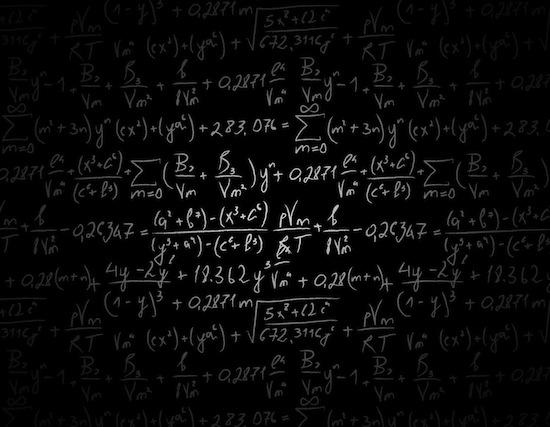
International Journal "Computers and Mathematics" in January of 2010 published a kind of a study entitled "The use of computers in mathematics" two mathematicians Sivasubramaniana M. and S. Kalimusu. The study was not a single proposal abstract, so the editors felt that the solution to a mathematical problem could be used a computer program. However, communication was provided by email only Kalimusu and coordinate to communicate with co-author was not. Anyway, despite the silly suggestions like "The increase in the number of computers is a universal phenomenon of the computer" and "this is a problematic issue" magazine it published.
The fact that M. Sivasubramanian was a fictional persona, the two references to sources have already been mentioned in other research for the authorship of the same Sivasubramaniana, another link led to an online store mathematical games, and three more - to non-existent websites. < br />
In the end, the publication of the magazine admitted mistake and refused to work because of the "low scientific value", but the fact of the publication explained how an administrative error.
3. There is no attempt, no dostizheniya
The adage "no attempt, no achievement" has some truth? Or, sometimes even giving up attempts can bring more than a success? Above these deep questions I have decided to reflect the Dutch sociologist Diederik Stapel.
His research showed that sometimes a failure makes a person feel better than success; beautifully decorated that advertising makes women feel ugly; that physical strength increases infidelity among men and women; that comparing yourself to others can help a person persevere in training or diet, but ultimately did not make him happy.
Slipway talked about so many things. His work has been published in leading journals. Its appearance and the unique themes of researchers have made him a frequent guest in the media and liberal television programs. The only problem is that all the studies have been completely fabricated. To date, the scientific community does not recognize his 31 his work.
4. Now in rabbit testicles bezopasnosti
Weak statistics underlines the link between mobile phone use and cancer. But that's not all research in this area.
Back in the year 2008 in the International Journal of Andrology published an article about the fact that mobile phones are in standby mode reduced sperm count and cause other adverse changes in the testes of rabbits. This study is a very strange facts and justifications quickly became popular, even though it was originally published in a small magazine. After she read the most cautious man probably began to wear a cell phone in the breast pocket of his shirt.
A March 2012, the authors renounced the study. It seems that the lead author is not shared with two of his co-workers, and as a result in refuting the article was written by "insufficient evidence of reliability studies».
5. Rather, cure heart disease, based on Stem Cells falshivoe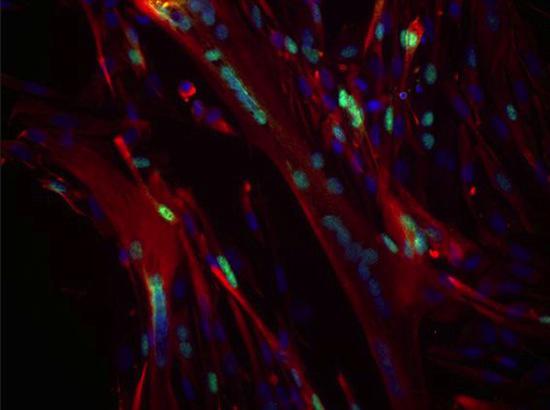
Time for publication of the study was perfect: a scientist from the University of Shinya Yamanaka at Kyoto has just won the Nobel Prize for the withdrawal of induced pluripotent stem cells, which can be reprogrammed in their embryonic stage.
And in early October, the representative of the University of Tokyo Hisashi Moriguchi, invited to a meeting of the New York Stem Cell Research Foundation, said that the same technology can be used to treat people with terminal heart failure.
Cheating was discovered very quickly. Both institutions referred to in the documents as provided Moriguchi cooperate with him - Harvard Medical School and the Massachusetts Community Hospital - denied that Moriguchi held in their territory any research. On October 19, the University of Tokyo Moriguchi fired because of dishonesty, not even opened an investigation into the matter.
via factroom.ru
1. Ying Mun Heng - genius, says Professor Mun

Korean scientist Ying Heng-moon raised the concept of peer review to the next level by considering their own own work under various aliases. Not surprisingly, his alleged colleagues were so impressed with his work.
Moon worked on the study of liver disease due to alcohol and over anticancer herbal medicines. Of course, after the deception was revealed, no one will trust his research. Moon himself has admitted falsifying some of the data in their work. So in 2012, the year of his 35 scientific papers were all rejected by the public.
2. Mathematical article - big fat nol

International Journal "Computers and Mathematics" in January of 2010 published a kind of a study entitled "The use of computers in mathematics" two mathematicians Sivasubramaniana M. and S. Kalimusu. The study was not a single proposal abstract, so the editors felt that the solution to a mathematical problem could be used a computer program. However, communication was provided by email only Kalimusu and coordinate to communicate with co-author was not. Anyway, despite the silly suggestions like "The increase in the number of computers is a universal phenomenon of the computer" and "this is a problematic issue" magazine it published.
The fact that M. Sivasubramanian was a fictional persona, the two references to sources have already been mentioned in other research for the authorship of the same Sivasubramaniana, another link led to an online store mathematical games, and three more - to non-existent websites. < br />
In the end, the publication of the magazine admitted mistake and refused to work because of the "low scientific value", but the fact of the publication explained how an administrative error.
3. There is no attempt, no dostizheniya

The adage "no attempt, no achievement" has some truth? Or, sometimes even giving up attempts can bring more than a success? Above these deep questions I have decided to reflect the Dutch sociologist Diederik Stapel.
His research showed that sometimes a failure makes a person feel better than success; beautifully decorated that advertising makes women feel ugly; that physical strength increases infidelity among men and women; that comparing yourself to others can help a person persevere in training or diet, but ultimately did not make him happy.
Slipway talked about so many things. His work has been published in leading journals. Its appearance and the unique themes of researchers have made him a frequent guest in the media and liberal television programs. The only problem is that all the studies have been completely fabricated. To date, the scientific community does not recognize his 31 his work.
4. Now in rabbit testicles bezopasnosti

Weak statistics underlines the link between mobile phone use and cancer. But that's not all research in this area.
Back in the year 2008 in the International Journal of Andrology published an article about the fact that mobile phones are in standby mode reduced sperm count and cause other adverse changes in the testes of rabbits. This study is a very strange facts and justifications quickly became popular, even though it was originally published in a small magazine. After she read the most cautious man probably began to wear a cell phone in the breast pocket of his shirt.
A March 2012, the authors renounced the study. It seems that the lead author is not shared with two of his co-workers, and as a result in refuting the article was written by "insufficient evidence of reliability studies».
5. Rather, cure heart disease, based on Stem Cells falshivoe

Time for publication of the study was perfect: a scientist from the University of Shinya Yamanaka at Kyoto has just won the Nobel Prize for the withdrawal of induced pluripotent stem cells, which can be reprogrammed in their embryonic stage.
And in early October, the representative of the University of Tokyo Hisashi Moriguchi, invited to a meeting of the New York Stem Cell Research Foundation, said that the same technology can be used to treat people with terminal heart failure.
Cheating was discovered very quickly. Both institutions referred to in the documents as provided Moriguchi cooperate with him - Harvard Medical School and the Massachusetts Community Hospital - denied that Moriguchi held in their territory any research. On October 19, the University of Tokyo Moriguchi fired because of dishonesty, not even opened an investigation into the matter.
via factroom.ru









